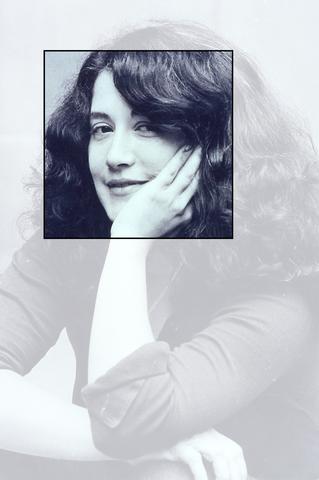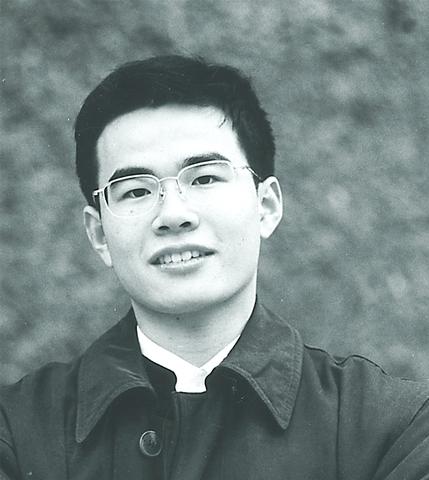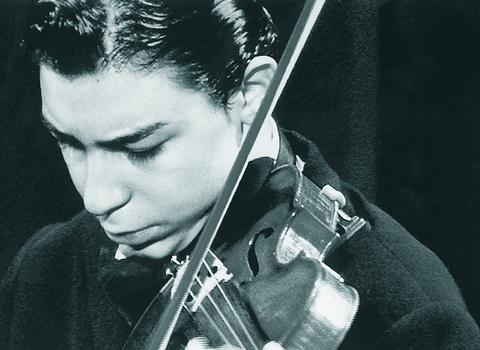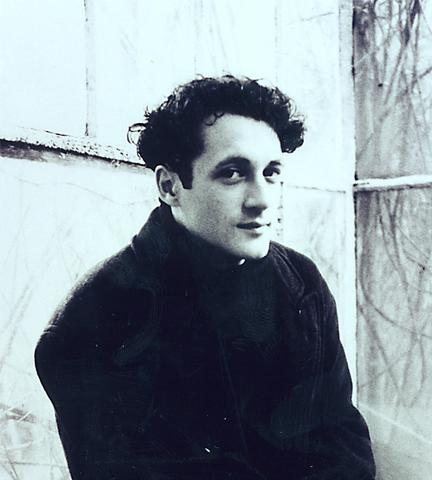It's too good to be true, but, Martha Argerich, the world's most prominent female pianist, is for the first time holding a festival in Taipei. The honor is a precious one considering that only Japan has an Argerich festival and that the pre-eminent Argentine pianist cancelled her Israel concert in favor of the Taipei venue.
Last year, after three cancelations, Argerich finally arrived in Taipei for the first time and was impressed by the hospitality with which she was greeted. She agreed to come back from something more than just a concert -- as a result, Taipei residents will be able to enjoy the first ever Argerich festival in Taiwan.
At a time when male pianists dominate the international music scene, Martha Argerich has managed to achieve a position towering above her many male counterparts. Aged 60, she is recognized as a peer of legendary Russian maestro Vladimir Horowitz and the idiosyncratic genius Glen Gould -- in other words, as one of the greats of the 20th century.

PHOTO COURTESY OF NEW ASPECT INTERNATION
Last year, when the Argentine pianist played Chopin and Prokofieff at New York's Carnegie Hall, she mesmerized a packed house, receiving six curtain calls at the intermission and 16 at the final curtain. Argerich's US fans warmly greeted her after an long absence of 19 years, which marked a victorious 10-year fight with cancer.
Her comeback has reminded music fans what they have been missing. In a review of the concert, Justin Davidson says of Argerich: "I can't think of another pianist who commands such a volatile combination of technical mastery and unselfconsciousness. Her greatest peers deal in deliberate sensitivity, structure and microscopic poetry, but Argerich's playing seems to well up from some bubbling, liquid core of musicality."
Local audiences share Davidson's enthusiasm. Last year, during Argerich's first visit here, she had local audiences shouting and stomping for more, giving her five standing ovations. And the superb Chopin interpreter was ardently requested to return, as she does every year to Japan.

PHOTO: COURTESY OF ASPECT
Argerich studied with such distinguished European pianists as Friedrich Gulda and Nikita Magaloff before she won the competitions at Busoni and Geneva in 1957 at just 16. Her debut recital was held in 1960. In 1965, she again won first prize in the Chopin International Competition in Warsaw, after which Karajan, Bernstein, and Solti could stop in their praise of her. In 1999, she was chosen as Best Instrumental Soloist Performance with Orchestra in the Grammy Awards.
Back in the 1960s, Argerich said she was thinking about starting a secretary's job before she won the Chopin competition. "I love to play the piano, but I don't like being a pianist," she told the press. "I am not very comfortable with my profession." But her incredible talent has pushed her to the forefront of her new profession and now she sets her own terms with concert organizers and record labels.
For her Taiwan trip, Argerich will be playing two concerts, a solo show and a ensemble performance in which she brings her favorite young musicians on stage, including Cuban pianist Mauricio Vallina, 30, Belgium pianist Alexander Gurning, 27, Swiss violinist Geza Hosszu-Legocky, 16, and the six-year-old Tango quintet Soledad Quintette, who will be playing a duo with Argerich for the festival.

PHOTO: COURTESY OF ASPECT
Two young pianists are also featured in the festival, each with their own solo recital. Chen Cheng (
Performance Note
WHAT The First Martha Argerich Music Festival

PHOTO: COURTESY OF ASPECT
in Taipei (台北阿格麗希音樂節)
WHEN Tomorrow until Thursday;
Tomorrow 7:45pm, Chen Cheng Piano
Recital -- The 1st Argerich Festival I
Sunday 10am, A lecture on Piano Competitions Worldwide -- The 1st Argerich Festival II
Monday 7:45 pm: Argerich Concerto Night
-- The 1st Argerich Festival III
Tuesday 7:45 pm: Argerich Ensemble Night
-- The 1st Argerich Festival IV
Thursday 7:45 pm: Etsuko Hirose Piano Recital -- The 1st Argerich Festival V
WHERE National Concert Hall (April 9, 10, 12), Recital Hall
(April 7-8), 21 Chungshan S. Rd.,Taipei.
(國家音樂廳及演奏廳 -- 北市中山南路21號)
TICKET Tomorrow NT$500-NT$800
Sunday NT$300
Monday, NT$2,200-NT$4,800
Tuesday NT$2,200-NT$4,800
Thursday NT$300-NT$1,600.
Call tel (02) 2709-3788 for more information

A vaccine to fight dementia? It turns out there may already be one — shots that prevent painful shingles also appear to protect aging brains. A new study found shingles vaccination cut older adults’ risk of developing dementia over the next seven years by 20 percent. The research, published Wednesday in the journal Nature, is part of growing understanding about how many factors influence brain health as we age — and what we can do about it. “It’s a very robust finding,” said lead researcher Pascal Geldsetzer of Stanford University. And “women seem to benefit more,” important as they’re at higher risk of

March 31 to April 6 On May 13, 1950, National Taiwan University Hospital otolaryngologist Su You-peng (蘇友鵬) was summoned to the director’s office. He thought someone had complained about him practicing the violin at night, but when he entered the room, he knew something was terribly wrong. He saw several burly men who appeared to be government secret agents, and three other resident doctors: internist Hsu Chiang (許強), dermatologist Hu Pao-chen (胡寶珍) and ophthalmologist Hu Hsin-lin (胡鑫麟). They were handcuffed, herded onto two jeeps and taken to the Secrecy Bureau (保密局) for questioning. Su was still in his doctor’s robes at

Last week the Democratic Progressive Party (DPP) said that the budget cuts voted for by the China-aligned parties in the legislature, are intended to force the DPP to hike electricity rates. The public would then blame it for the rate hike. It’s fairly clear that the first part of that is correct. Slashing the budget of state-run Taiwan Power Co (Taipower, 台電) is a move intended to cause discontent with the DPP when electricity rates go up. Taipower’s debt, NT$422.9 billion (US$12.78 billion), is one of the numerous permanent crises created by the nation’s construction-industrial state and the developmentalist mentality it

Experts say that the devastating earthquake in Myanmar on Friday was likely the strongest to hit the country in decades, with disaster modeling suggesting thousands could be dead. Automatic assessments from the US Geological Survey (USGS) said the shallow 7.7-magnitude quake northwest of the central Myanmar city of Sagaing triggered a red alert for shaking-related fatalities and economic losses. “High casualties and extensive damage are probable and the disaster is likely widespread,” it said, locating the epicentre near the central Myanmar city of Mandalay, home to more than a million people. Myanmar’s ruling junta said on Saturday morning that the number killed had